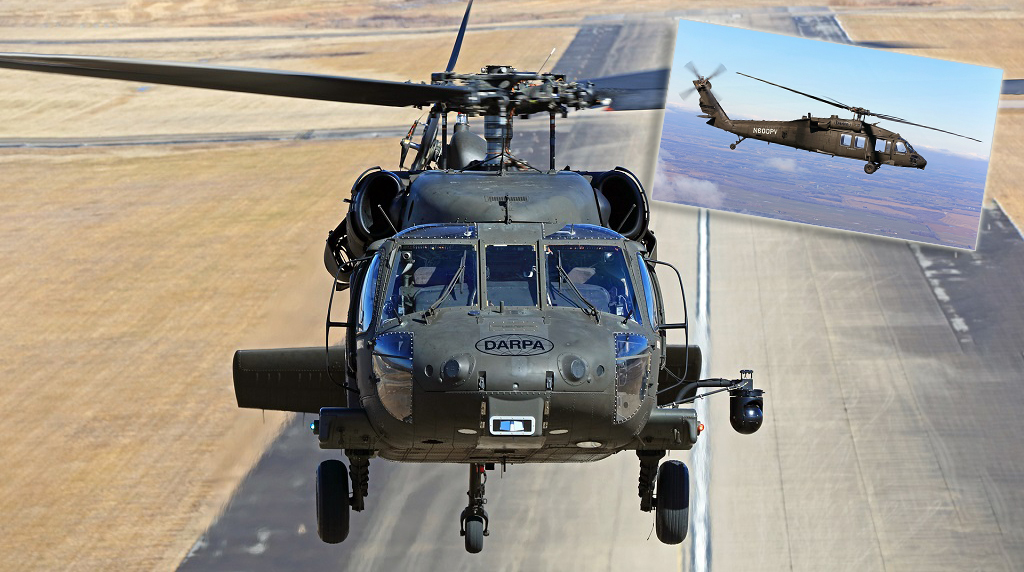UH 60 Black Hawk: Trick Functions and Developments
UH 60 Black Hawk: Trick Functions and Developments
Blog Article
The Function of Aircraft in Shaping Worldwide Transportation and Trade Characteristics
Via the establishment of durable air cargo networks, companies can now navigate worldwide markets with remarkable speed and agility, therefore redefining supply chain techniques. As we discover the multifaceted influences of airplane on international profession, it is essential to think about how these factors will shape the future landscape of air travel and its role in the economic climate.

Evolution of Air Transport
The evolution of air transport has been noted by considerable technological advancements and technologies that have changed the method individuals and goods relocate throughout the world. From the Wright brothers' initial powered flight in 1903 to the development of supersonic jets, each landmark has underscored the relentless search of effectiveness and speed in flight. Early aircraft were primarily fundamental, restricted by engine power and architectural integrity. The introduction of innovative materials and the rules of aerodynamics in the mid-20th century led to significant enhancements in airplane safety and security, performance, and integrity.
The latter component of the 20th century observed the appearance of industrial aviation as a practical mode of transport, defined by the introduction of jet engines, which changed air traveling by significantly decreasing flight times. Additionally, developments in navigation and communication technologies have actually improved operational performance and safety and security, permitting even more complicated flight routes and schedules. The surge of air freight in parallel with traveler services has further underscored the versatility of aeronautics. As we aim to the future, emerging innovations such as electric and independent aircraft promise to redefine the air transportation landscape, ensuring ongoing advancement and adaptation to global needs.
Influence On Global Profession
Air transportation has actually profoundly improved global profession by helping with the swift activity of products throughout large ranges. This expedited logistics ability permits services to react quickly to market demands, therefore improving supply chain performance. The capability to move disposable items, high-value items, and time-sensitive products has actually opened up brand-new markets and chances for numerous industries, dramatically influencing profession patterns.
Moreover, the advancement of air freight networks has actually cultivated globalization, allowing firms to source materials and items from various parts of the globe flawlessly. This interconnectedness decreases preparations and prices, allowing services to continue to be competitive in a progressively international marketplace. Furthermore, air transportation plays an essential function in shopping, where customer expectations for fast shipment have actually driven a rise in demand for air freight services.
The effect of airplane on international profession extends to the development of calculated profession courses, connecting regions and helping with worldwide collaborations. Countries that invest in air transportation framework often experience enhanced economic growth and boosted international straight financial investment. On the whole, the advancement of air transport has not just changed the logistics landscape yet has also become a vital component in the dynamics of worldwide trade.

Financial Advantages of Air Travel
A robust aeronautics field produces substantial economic advantages, adding to task development, tourism, and total financial growth - uh 60. The aeronautics market sustains countless jobs globally, varying from direct employment in airline companies and flight terminals to indirect functions in industries such as friendliness, her explanation transportation, and logistics. According to industry records, for every work in the air travel industry, approximately 3.5 extra jobs are developed in the wider economy
Tourist is a critical component of the economic advantages stemmed from aviation. Flight facilitates worldwide tourist, allowing travelers to check out diverse locations, which in turn boosts local economic climates. Nations that invest in their air travel infrastructure typically experience raised visitor arrivals, causing greater spending on solutions such as attractions, dining establishments, and resorts.

Furthermore, air travel boosts global connection, making it possible for companies to access brand-new markets and sources efficiently. This connectivity promotes global trade, enabling the fast activity of goods, which is important in today's globalized economic climate. Because of this, sectors such as ecommerce and production advantage immensely from reputable air transportation, more driving financial development. Overall, the air travel market stays a keystone of financial vigor, emphasizing its integral role fit contemporary economic climates.
Obstacles Encountering the Air Travel Sector
Navigating an intricate landscape of regulative, ecological, and financial difficulties, the air travel industry faces substantial difficulties that intimidate its sustainability and development. Regulations surrounding safety and security and protection are consistently progressing, requiring ongoing compliance and adjustment from producers and airlines (uh 60). This can bring about raised functional costs and source allowance that interferes with innovation and development initiatives
Additionally, ecological worries have become extremely important, with growing scrutiny over carbon exhausts and sound pollution. The industry is under pressure to take on greener innovations and practices, which often need substantial financial investment in research study and growth. Balancing these ecological obligations with the demand for air traveling presents a significant challenge.
Financial fluctuations, such as rising fuel prices and geopolitical uncertainties, even more complicate the landscape. Airline companies often come to grips with volatile operating expense and rising and fall traveler need, which can affect productivity and long-term planning. Labor shortages and skill spaces in critical areas include try this website another layer of intricacy, preventing operational effectiveness.
Ultimately, attending to these complex obstacles is crucial for the air travel sector to preserve its essential duty in international transport and profession, while guaranteeing durability and flexibility in an increasingly open market.
Future Fads in Flight
Emerging innovations and changing consumer choices are positioned to improve the future of air travel considerably. The combination of expert system and artificial intelligence is anticipated to improve functional performance, streamline airport processes, and improve customer support. Predictive analytics will certainly assist in extra exact need projecting, permitting airline companies to maximize trip schedules and pricing models.
Sustainability is becoming an essential chauffeur in air travel, with the air travel industry increasingly concentrated on reducing visit the website carbon emissions. Innovations in aircraft design, such as hybrid and electrical propulsion systems, are being discovered to satisfy ecological targets. Moreover, the adoption of lasting aeronautics fuels (SAFs) is anticipated to play a crucial duty in achieving net-zero discharges by 2050.
Customer preferences are shifting in the direction of customized traveling experiences. Airline companies are investing in innovative information analytics to tailor solutions and improve client engagement, making certain an extra personalized journey from scheduling to arrival. Furthermore, the rise of remote job may lead to raised need for leisure traveling, as individuals look for to integrate work and trip.
Final Thought
The development of air transport has actually changed international profession, producing considerable economic advantages while also offering difficulties that require tactical management. The ongoing adjustment of the aviation sector will be important for sustaining its payments to the worldwide economic climate.
The last component of the 20th century witnessed the development of industrial aeronautics as a viable mode of transport, defined by the intro of jet engines, which changed air travel by significantly minimizing trip times. The increase of air freight in parallel with guest solutions has actually further underscored the flexibility of air travel. Furthermore, air transportation plays a critical duty in e-commerce, where consumer assumptions for fast distribution have actually driven a surge in demand for air freight services.
In general, the advancement of air transport has not just transformed the logistics landscape however has likewise end up being an important element in the dynamics of global trade.
Sustainability is coming to be a vital vehicle driver in air traveling, with the aeronautics market progressively focused on decreasing carbon discharges.
Report this page